Meanings of the Religious Symbols from the Christian, Catholic, Hindu, Buddhist, Jewish, Islamic Traditions:
Christian Symbols
The Christian Cross
The Christian Cross is one of the earliest and most widely used Christian symbols. The cross is a sign both of the faith of Christian and of Christ himself.
However, the cross is found in both non-Christian and pre-Christian cultures. The cross began to see more common use throughout Christianity, beginning with the fourth Century and Emperor Constantine.
Crown of Thorns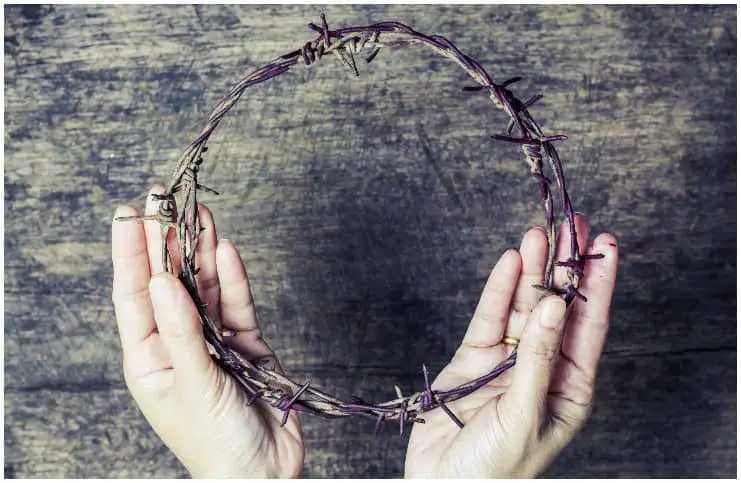
For Christians, the crown of thorns is a reminder that Jesus was willing to endure the shame, the insults, and pain, all on our account. In Matthew 27:28-29, we read, “And they stripped him and put a scarlet robe on him, and twisting together a crown of thorns, they put it on his head and put a reed in his right hand. And kneeling before him, they mocked him, saying, ‘Hail, King of the Jews!'”
Christian Dove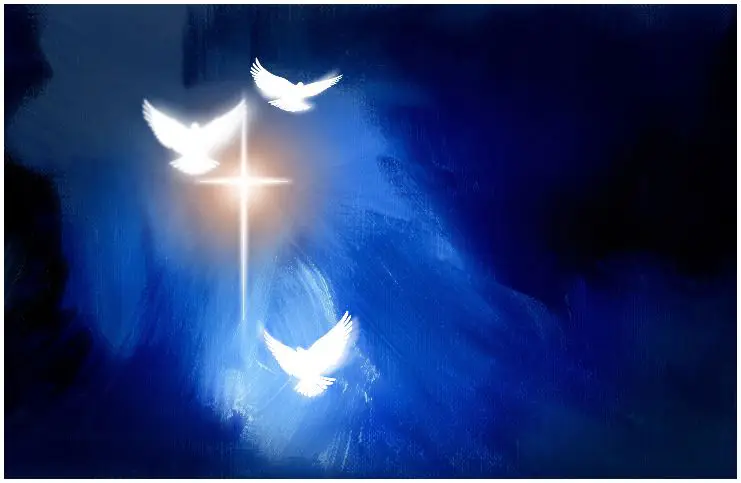
The dove has been used among numerous Christian denominations as a general symbol for new beginnings, purity, and peace, as well as a symbol for the Holy Spirit.
All four Gospels include the account of the Holy Spirit descending on Jesus in bodily form like a dove (John 1:32; Luke 3:22; Mark 1:10; Matthew 3:16).
Note – the dove became an iconic symbol of the mother goddess in the Ancient Near East and the Mediterranean world.
Christian Fish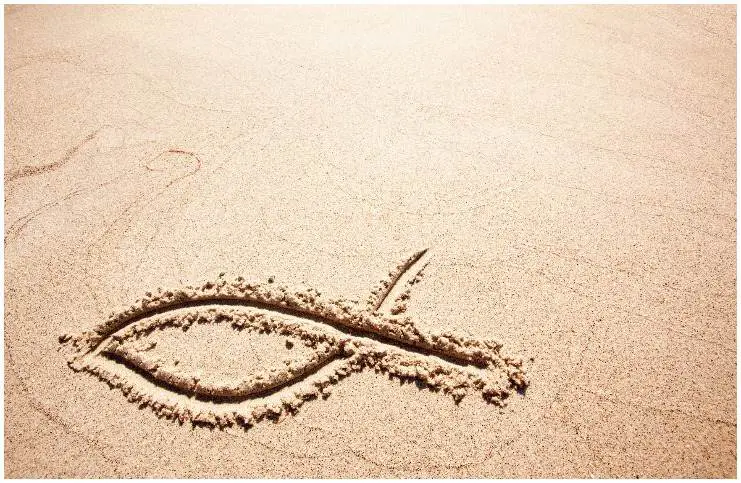
The fish was meaningful to Christians because of the many accounts from Jesus’ life involving fish. Twice, Jesus provided a miraculous draught of fish for His disciples (John 21:4–6; Luke 5:4–7).
The Greek word for ”fish” is ”ichthus,” which works as an acrostic for I = Jesus, C = Christ, TH = God’s, U = Son, S = Savior).
Catholic Symbols
The Lamb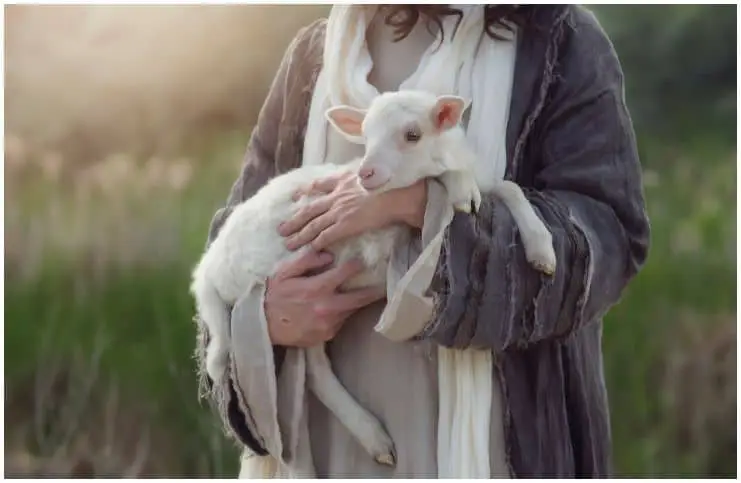
In the Gospels, Jesus is specifically identified as “the lamb of God.” In John 1:29, we read: “Behold the Lamb of God, which taketh away the sin of the world.”
Crossed Keys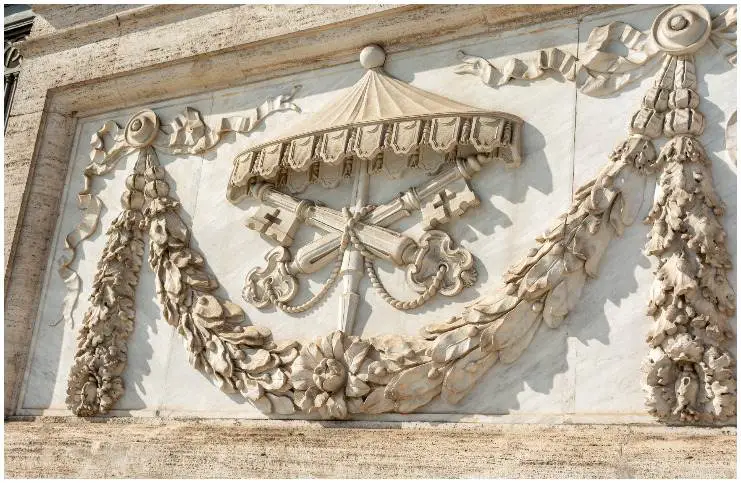
These two crossed keys are a symbol of the papacy. In the Gospel of Matthew (16:19), Jesus said to Peter, “I will give you the keys of the kingdom of heaven; whatever you bind on earth will be bound in heaven, and whatever you loose on earth will be loosed in heaven.”
Fleur de Lis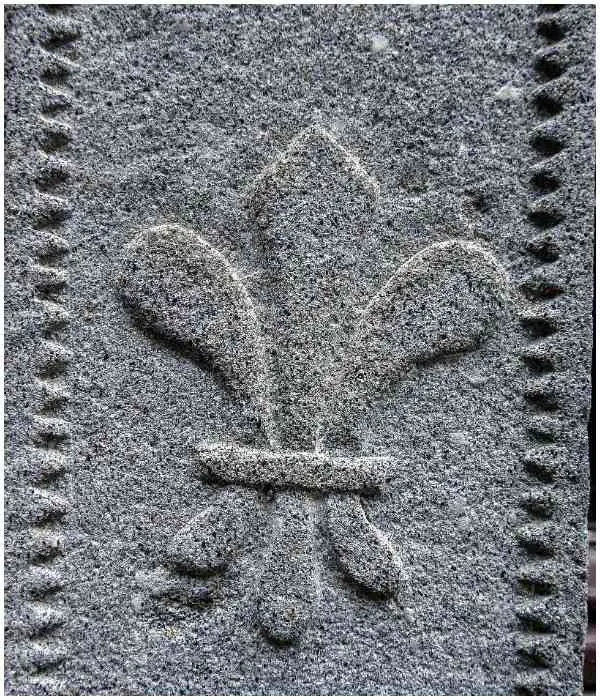
A medieval emblem in France representing the lily as a symbol of purity.
The Sacred Heart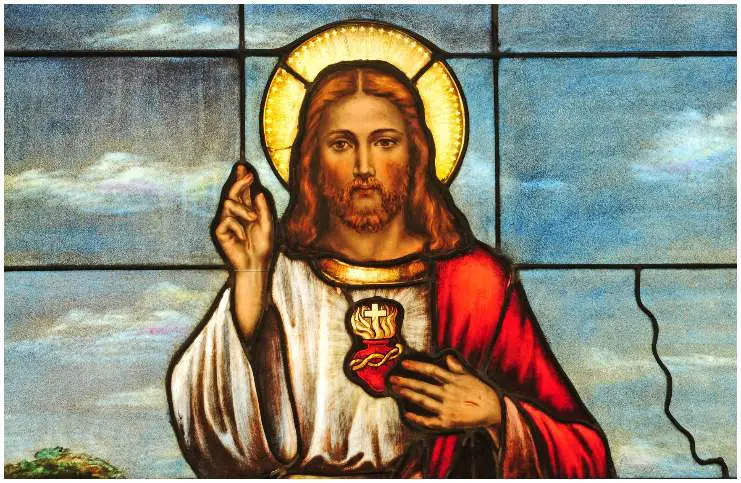
The Sacred Heart represents Jesus Christ’s actual heart as His love for all of humanity. Saint Gertrude the Great was an early devotee of the Sacred Heart of Jesus.
Alpha and Omega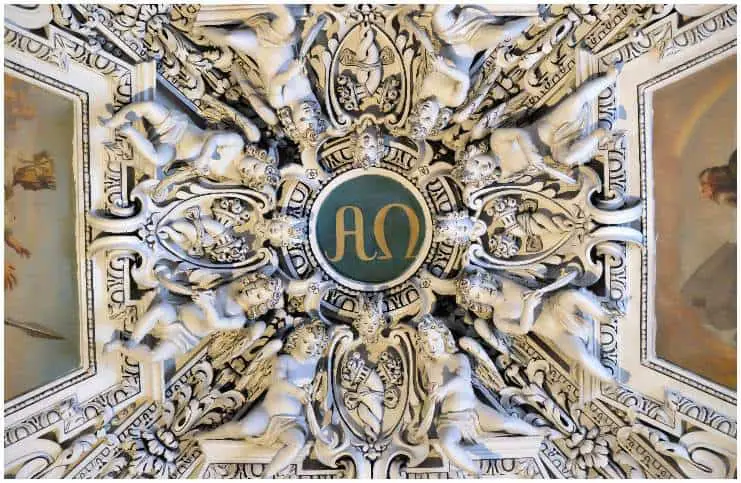
Alpha and Omega are the first and the last letters, respectively, of the Greek alphabet. Alpha and Omega refer to the eternal nature of Christ. In Revelation 22:13, we read: ”I am the Alpha and the Omega, the first and the last, the beginning and the end.”
Crucifix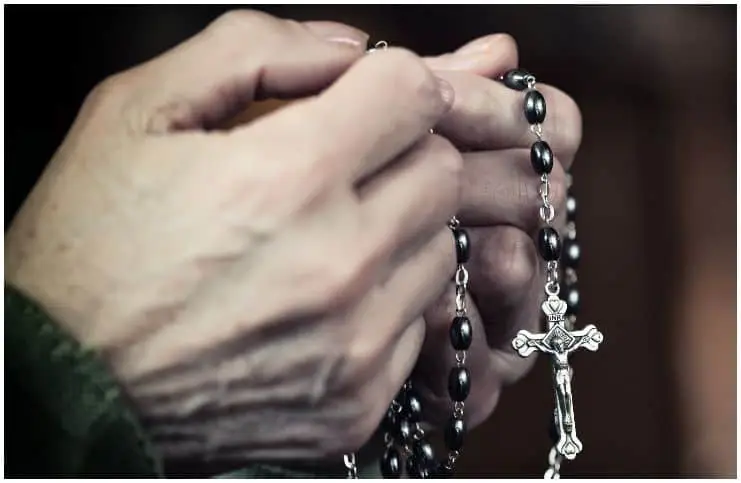
A crucifix is a cross with a depiction of Jesus on it. To Catholics, the crucifix is a symbol that signifies the focal point of their beliefs – that Jesus died on the cross to redeem humanity.
Hindu Symbols
The Lotus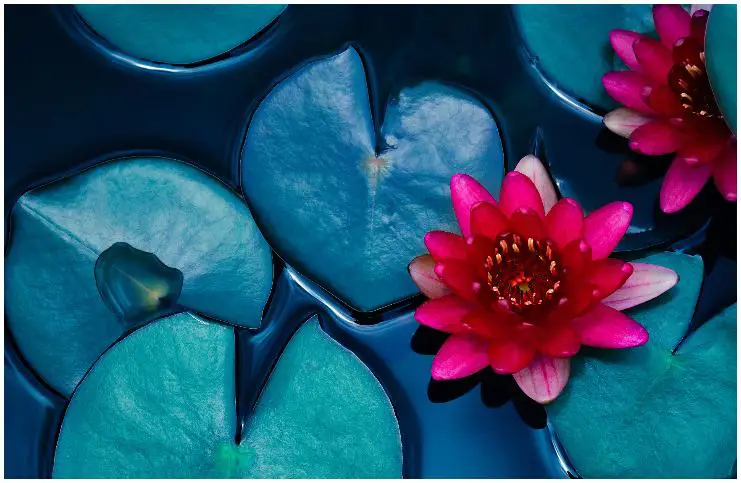
The lotus is the foremost symbol of fertility, prosperity, and beauty.
The Shiva Lingam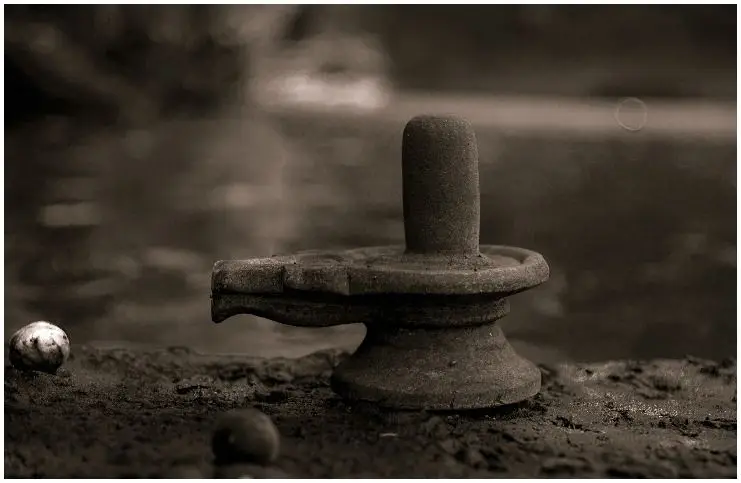
The Shiva Linga is a symbol that represents Lord Shiva in Hinduism.
In Sanskrit, Linga means a “mark” or a ”symbol.”
Rudraksha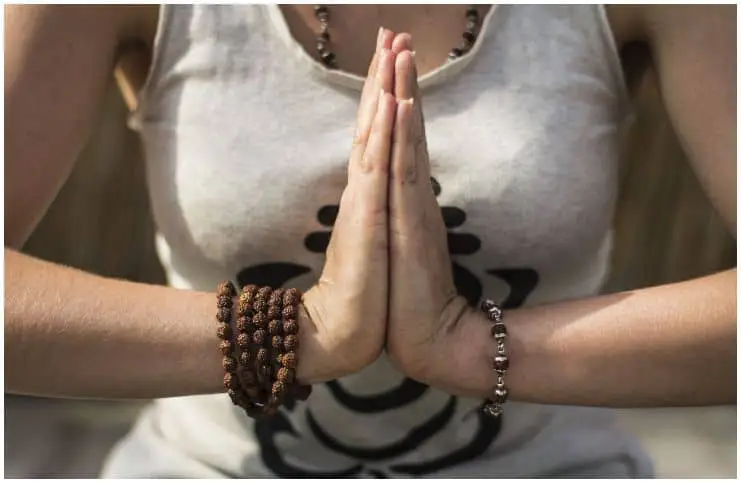
Rudraksha is a seed that is used as a prayer bead in Hinduism. Necklaces made of Rudraksha beads are considered auspicious.
Tilaka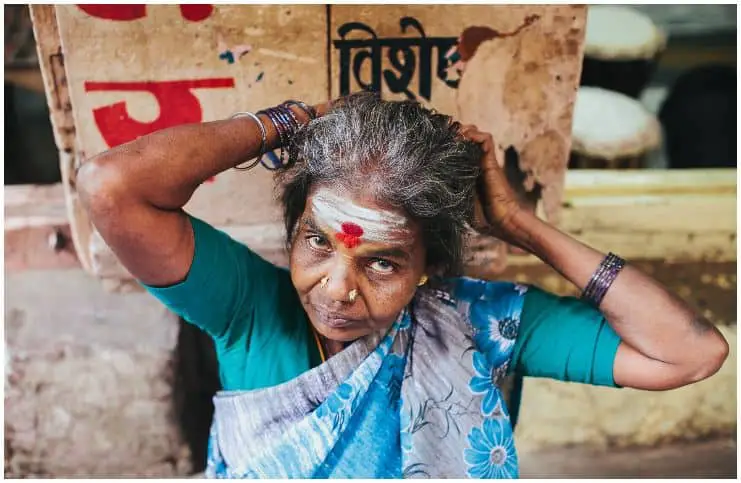
The Tilaka Symbol is an auspicious mark worn usually on the forehead, between the eyebrows. The marks are made with a metal stamp or by hand.
The Sri Yantra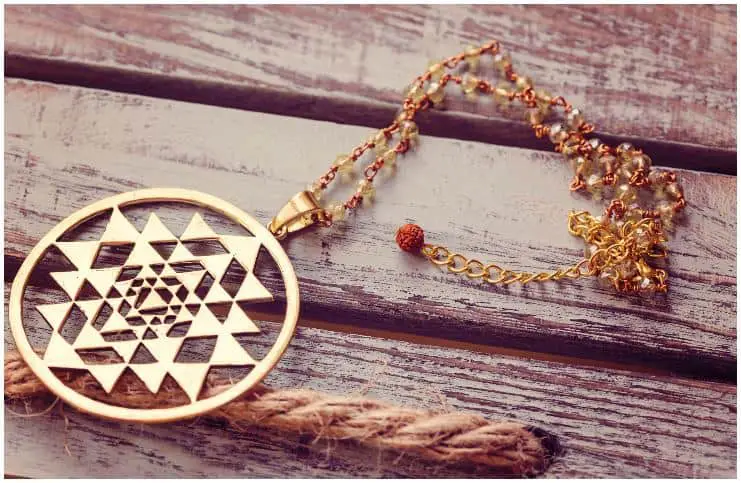
The Sri Yantra is considered the visual equivalent of Sri Vidya, a mantra of 15 syllables. The outside square represents mundane emotions such as worldly desires, fear, and anger, while the outer square represents the earth element.
The Swastika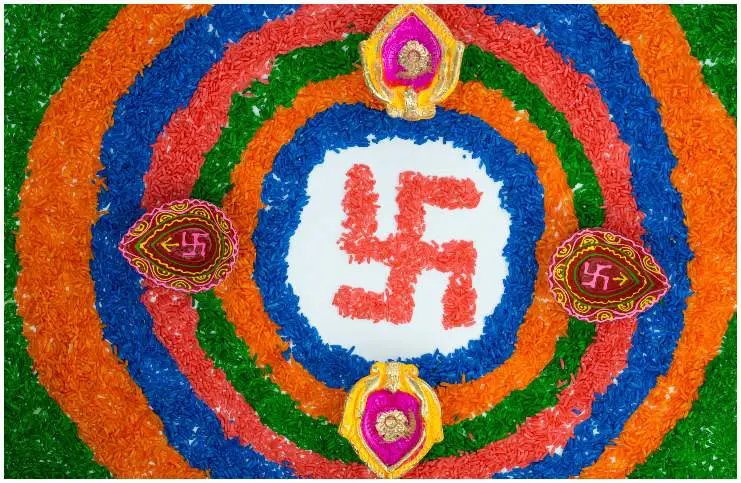
The swastika is a cross with four arms of equal length, with the ends of each arm bent at a right angle. In the ancient Indian language of Sanskrit, swastika means “well-being.” It is also seen as a power symbol and is also the emblem of Ganesha, the elephant-headed Hindu god of beginnings.
Om (or Aum)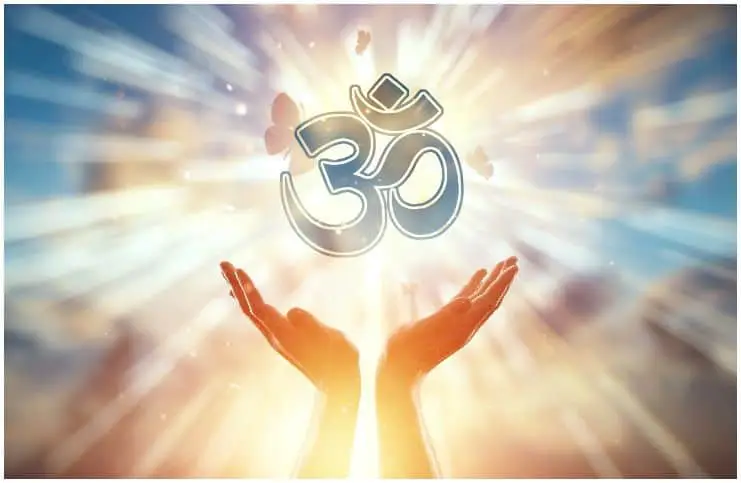
Hindus consider Aum to be the universal name of the Lord and that it surrounds all of creation.
Buddhist Symbols
The Bodhi Tree
The Bodhi tree is the tree under which Gautama Buddha found enlightenment.
The Eternal Knot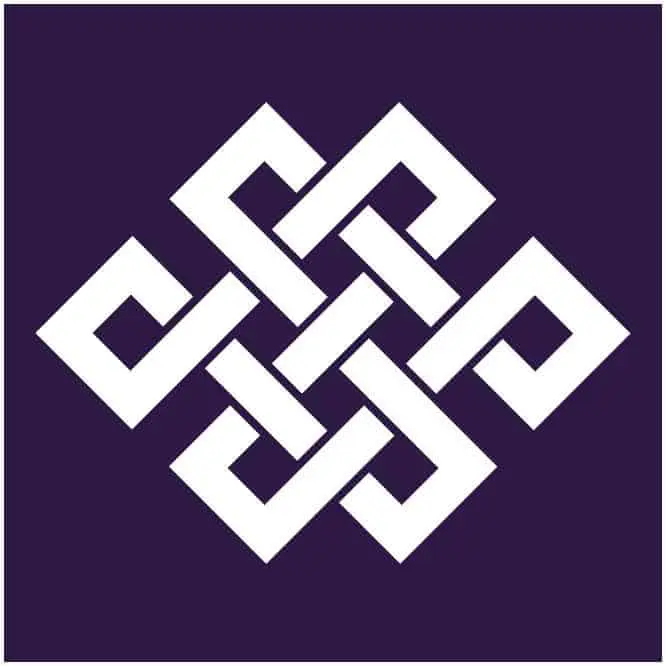
The eternal knot evokes the cyclic nature of rebirth.
The Dharma Wheel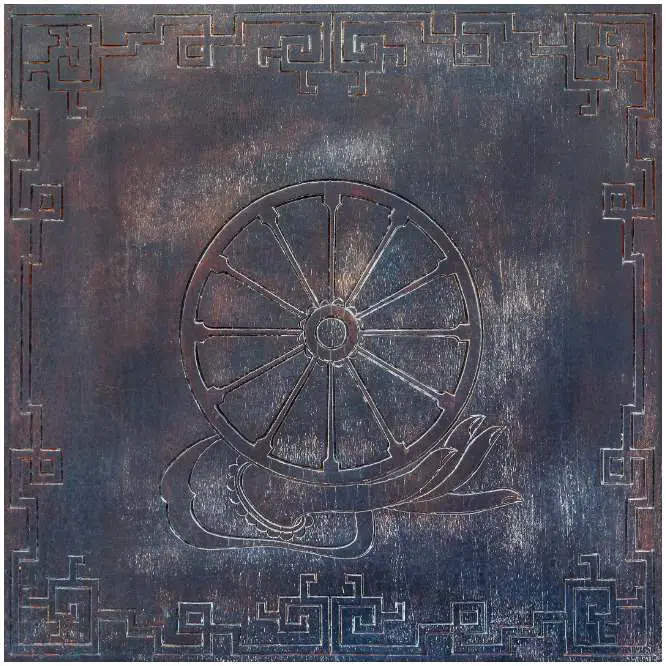
It represents the teachings of Buddha.
The Vase
The Buddhist treasure vase is a symbol of prosperity and wealth.
The Banner of Victory
It was adopted by early Buddhists to celebrate the enlightenment of Gautama Buddha.
The Conch Shell
It is associated with truthful speech and strength.
The Two Golden Fish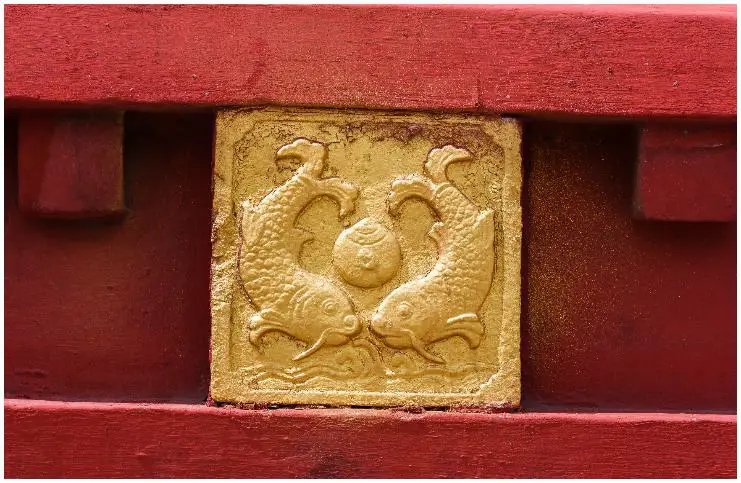
It represents happiness and good fortune.
The Parasol
In Buddhism, the parasol is a symbol of royal dignity. The parasol is part of The Ashtamangala.
Jewish Symbols
Ketubah
A Ketubah is a formal contract in a Jewish religious marriage.
Hamsa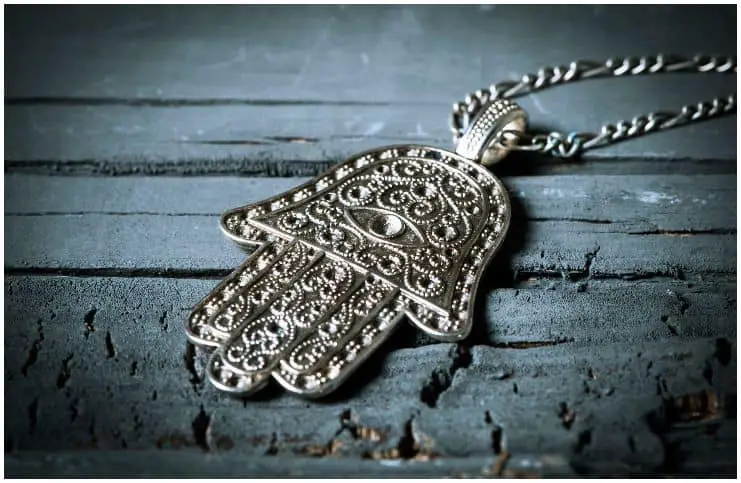
The hamsa symbolizes the “hand of God.”
READ MORE: 10 Yoga Symbols
Star of David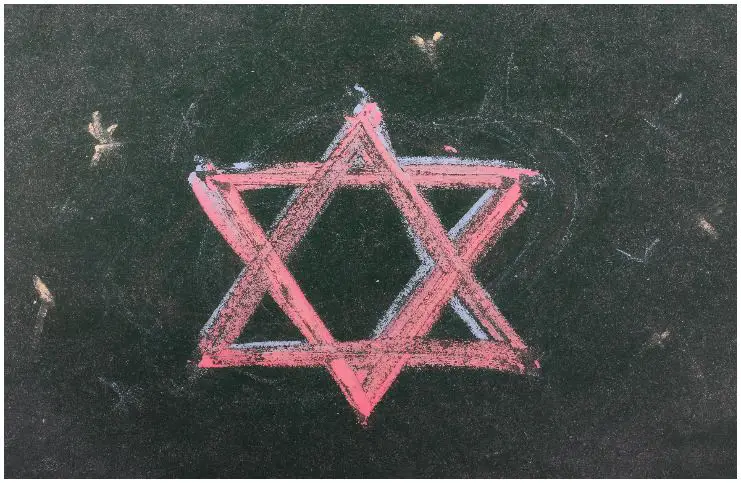
It is composed of two overlaid equilateral triangles, one pointing up and the other pointing down. The Star of David appears on the flag of the State of Israel, Jewish tombstones, and synagogues.
READ MORE: 11 Celtic Symbols
Menorah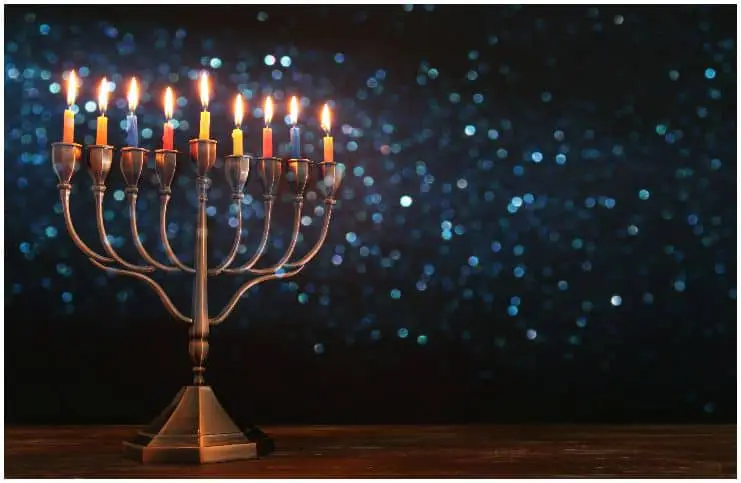
The word “menorah” is Hebrew for “lamp.” It represents the 7 days of creation.
READ MORE: Ancient Protection Symbols Against Evil
Islamic Symbols
Rub el Hizb
It is used to facilitate the recitation of the Quran.
The Star and Cresent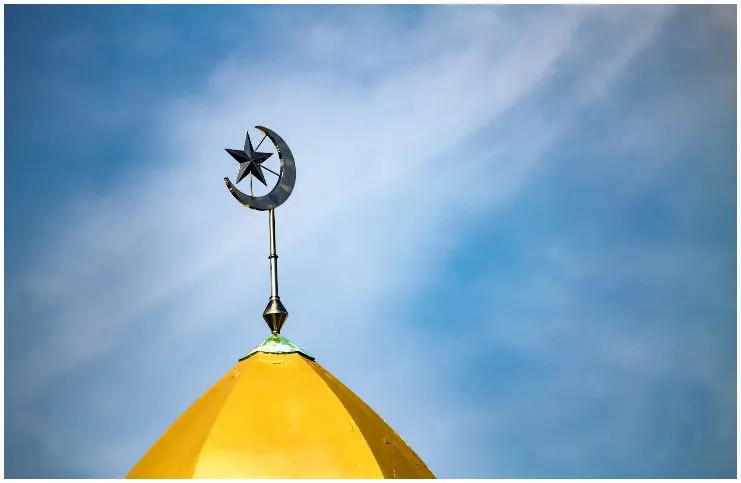
The Star and Cresent is a symbol of the Islamic faith; however, some Muslims consider it un-Islamic and even blasphemous.
READ THIS NEXT: 21 Alchemy Symbols
Images credit – Shutterstock.com
References https://www.britannica.com/topic/cross-religious-symbol https://www.newworldencyclopedia.org/entry/Cross
- About the Author
- Latest Posts
As a founder and chief author at InsightState.com, Bulgarea Candin helps readers on their spiritual journeys. His writings are designed to inspire creativity and personal growth, guiding readers on their journey to a more fulfilled and enlightened life.

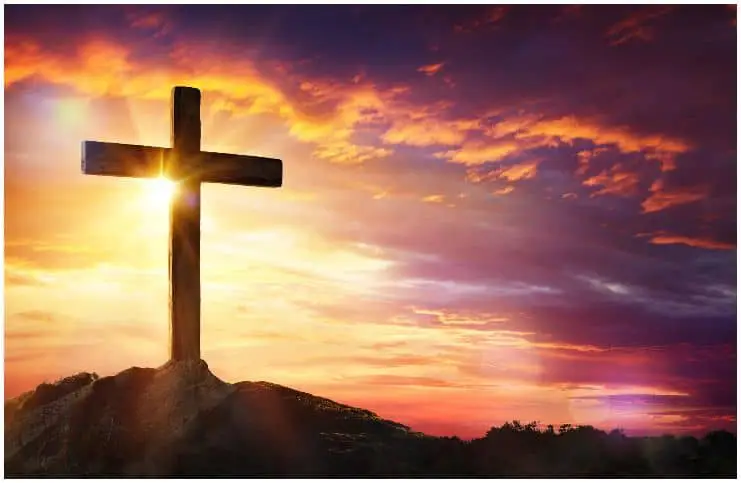
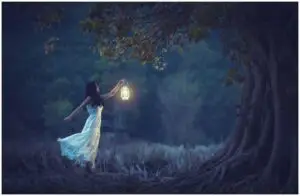
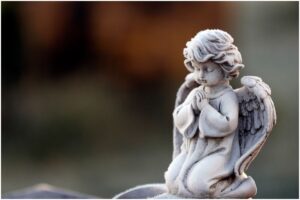


Jesse kamei
Sunday 3rd of May 2020
Thank for indispensable stuffs I obtained. I learned and opened my eyes precious asset.